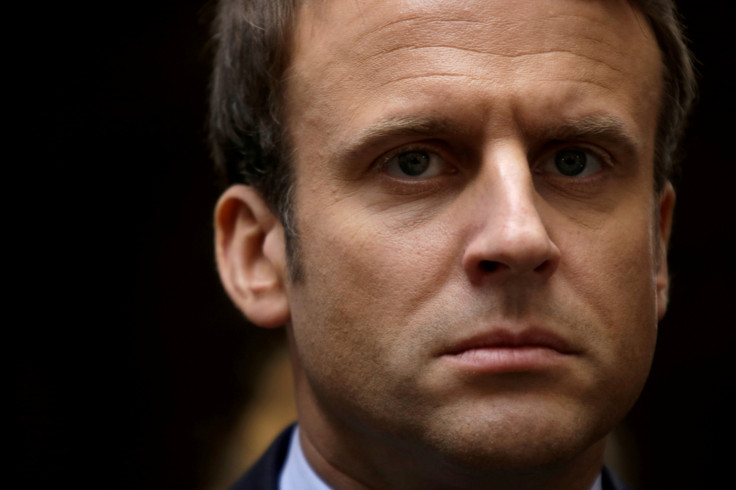Despite high abstentions, Macron is more popular than Sarkozy and Hollande
There were 4 million spoiled ballots – defaced or empty voting slips – twice the previous record in 2012.
"Dr Smith, do you think, like many other commentators, that Emmanuel Macron will turn out to be a timid centrist?"
I won't name the channel nor the presenter because it doesn't matter, but my answer was something along these lines: "During which bit of Emmanuel Macron's meteoric rise to the presidency of the French Republic did you detect any timidity? Because one locates oneself in the centre doesn't mean you are timid." I was reminded of the reply moderate republicans gave to monarchists at the birth of the modern republic in the 1870s; that they were moderate republicans, but not moderate in their republicanism. And anyone who watched last Wednesday's debate between the two candidates will know that Macron is anything but timid. Muscular centrism, anyone?
Let's have no illusions about what has happened in France. The candidate who claims to be ''neither right, nor left'' (yes, I know about the overtones of that particular slogan) saw off both the left and the right and has now defeated the far-right as well. And now we face a general election in June where almost everything appears to be up for grabs: a situation of extraordinary political fluidity.
Macron's score – 66% –was way ahead of projections. ''Not a landslide'', said a commentator on the same station. In a two-horse race? Not a landslide?
Well no, not compared to the 81% that voted for Jacques Chirac in 2002, when the left realised its stupidity in the first round and voted en masse for him against Jean-Marie Le Pen. But still considerably ahead of the next best result (Georges Pompidou, elected with 58% against the centrist Alain Poher in 1969) in the history of the Fifth Republic (1958 to the present).
Of course, a large portion of the votes for Macron were ''faute de mieux'' (for lack of a better option). But they always are in this sort of election. That's the game. In the first round you vote for the candidate you want, in the second you vote against the one you don't. It might not be very democratic, but that's how it is.
It's equally true that the rate of abstention was higher than we would normally expect for the second round of the presidential election. The rule of thumb is 80% turnout. This time it's 75%. Is that very poor? Given that some opinion polls were reckoning less than 70%, it looks pretty healthy in an age of political disenchantment.
But of course, within that turnout are 4 million spoiled ballots – that is to say defaced voting slips or empty envelopes – twice the previous record recorded in 2012. An act of positive abstention, probably largely perpetrated by left-wing voters who had supported Jean-Luc Mélenchon or Benoît Hamon in the first round and find Macron too much the neo-liberal mondialiste to vote for him with happy hearts.
With 43.6% of the electorate supporting him, Macron is ahead of Sarkozy's ''real'' score for 2007 (42.7%) and Hollande in 2012 (39%).
Macron knows the truth of his position and he knows that in order to gain a workable majority in the elections to the National Assembly, on 11 and 18 June, he needs to work hard, either backing candidates under his own En Marche! pour la République banner, or in supporting likely coalition partners. It won't be straightforward, but the French two-round voting system and the traditions of cutting local deals from one constituency to another generally works in favour of the government.

Abstention will again be the enemy, though not, this time, of Macron. Since the system was changed, in 2002, to establish a double-election (presidential, then general election), voters on the losing side have tended to stay at home in the general election, with the first-round turnout dropping incrementally from 63% to 57% in 2002, 2007 and 2012.
The challenge before all the parties will be to mobilise their supporters. And don't expect the results of the first round of the presidential election to be reproduced in June. Informed observers suggest that Le Pen will be looking to head a group of about 40 deputies, either as the Front National or under a new title, as she herself suggested in her quick fire speech acknowledging defeat on Sunday evening.
Le Pen has been a disappointment. She failed to make the first-round campaign about the issues she really cares about, immigration and law and order. Then she finished second to the upstart Macron and was nearly caught by François Fillon, of all people. And her second round score was way below the expected 40%.
Le Pen was quick to respond to her defeat. Addressing her supporters at a little after ten past eight, she declared herself to be ''la première force de l'opposition'' in a political landscape divided between patriots and globalisers.
The key word here is ''opposition''. Who will support Macron and who will not? And at what price?
A suivre...
Dr Paul Smith is Associate Professor in French and Francophone Studies at the University of Nottingham
© Copyright IBTimes 2025. All rights reserved.






















